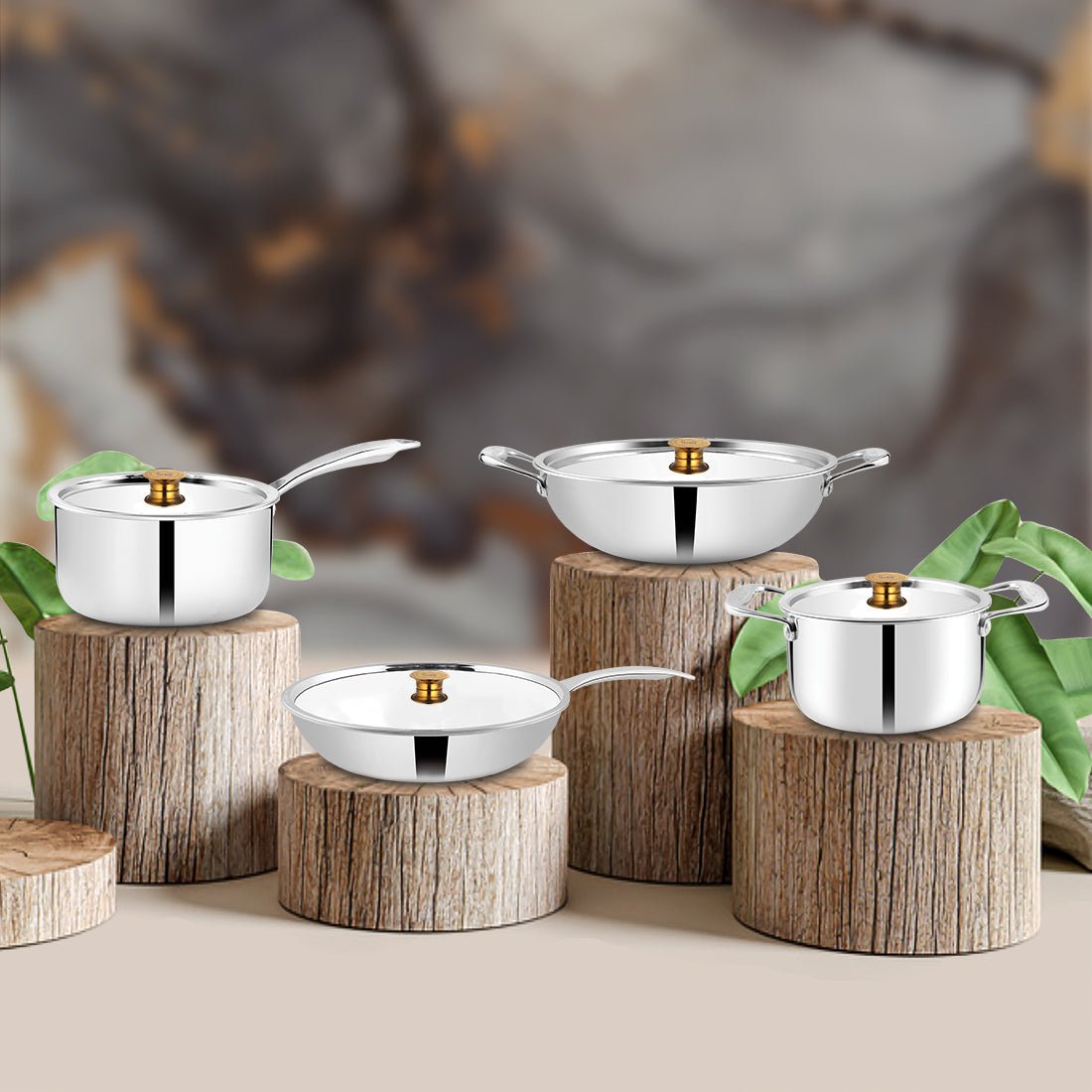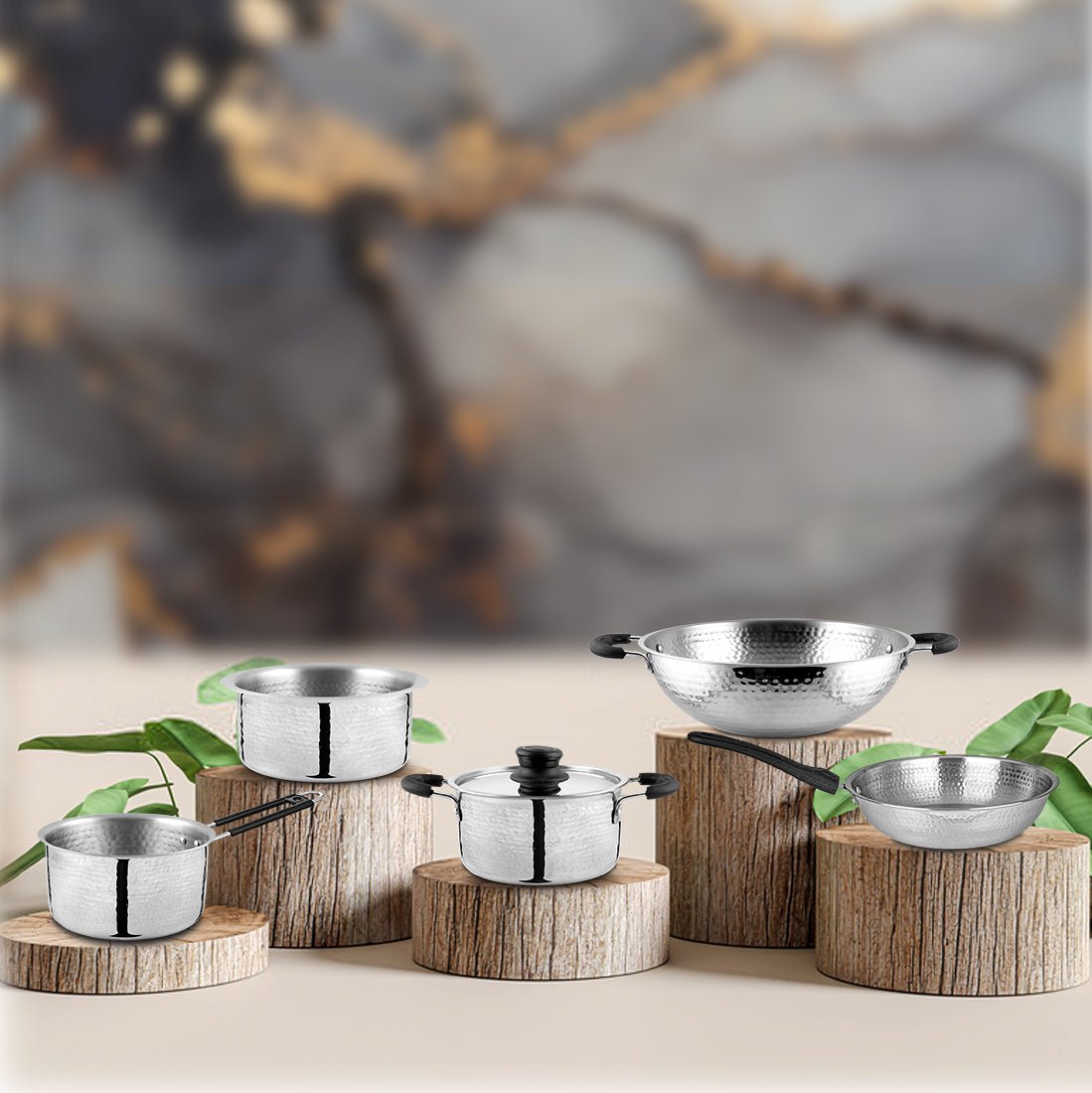
Tips to extend the life of your cookware!
The first benefits of non-stick cookware that come to mind are cooking with less oil, ease of use, and more delicious food texture. But amid all this, we frequently neglect to consider the upkeep and cleaning of the delicate range. Even if you purchase the best and most expensive item, it will eventually chip off, and you will be forced to discard it because you are aware of the dangers of ingesting its non-stick coating. Learn the ten clever tips below to prolong your non-stick cookware's life.
- Do not use cooking spray.
The cooking spray adheres to the surface of a preheated pan when you apply it, making it difficult to remove later and possibly damaging the non-stick coating.
- Heat them properly.
Non-stick pans are typically best used on low or medium heat. Cooking with them at high temperatures could harm the coating and taint the food. You can use the butter test to determine the proper temperature; if bubbles appear, the pan is heated to the appropriate temperature; if the butter turns brown, the heat should be reduced.
- Use cooking oil to season.
Wash the non-stick pans under running water, dry them off, and season them with cooking oil before using them for the first time. After one minute of heating, use a paper towel to remove any remaining oil. Doing this, the pan is cleaned of all manufacturing leftovers and ready for cooking.
- Keep them clean.
Wash the pan in warm water with a soft sponge and soapy liquid. Use a paper towel soaked in vegetable oil to polish the pan after every cleaning to extend its life. Use a baking soda and water solution to eliminate any burned oil stains.
- Dry following each use.
Even if the business asserts that its products are dishwasher safe, avoid it at all costs. Additionally, wash the pan (as instructed above) and dry it with a soft cloth after each use to prevent rusting.
- Do not cook acidic foods.
The non-stick coating is very brittle, and foods with high acidity, like tomatoes and lemons, may cause it to peel off when heated. To prolong the shelf life of pans, avoid cooking any acidic foods.
- Put them away properly.
To prevent the pans from clinging to other utensils, keep them hanging at all times and leave plenty of space between them. Keep them far from sharper objects to prevent harm to the non-stick finish.
- Do not ever keep food in the pan.
Non-stick pans should only be used for quick cooking, not for storing food. Long-term food storage in a non-stick pan may degrade the pan and the food.
- Let the water cool before washing.
The pan might become permanently wrapped by the abrupt temperature change, rendering it unusable for future cooking.
- Steer clear of using metal spoons when cooking.
Avoid using heavy, sharp objects like metal spoons and knives when cooking in non-stick pans. Silicone, plastic, or wooden surfaces are the best for non-stick cooking.
The material matters most when it comes to cooking utensils, so keep that in mind when caring for them. When it comes to suggested and appropriate cleaning methods, pay attention to the manufacturer's advice and instructions, regardless of whether the item is made of stainless steel, copper, aluminium, ceramic, cast iron, or some combination of the above. Do not hesitate to contact Shri and Sam if you want to purchase any cookware.


Leave a comment
This site is protected by hCaptcha and the hCaptcha Privacy Policy and Terms of Service apply.